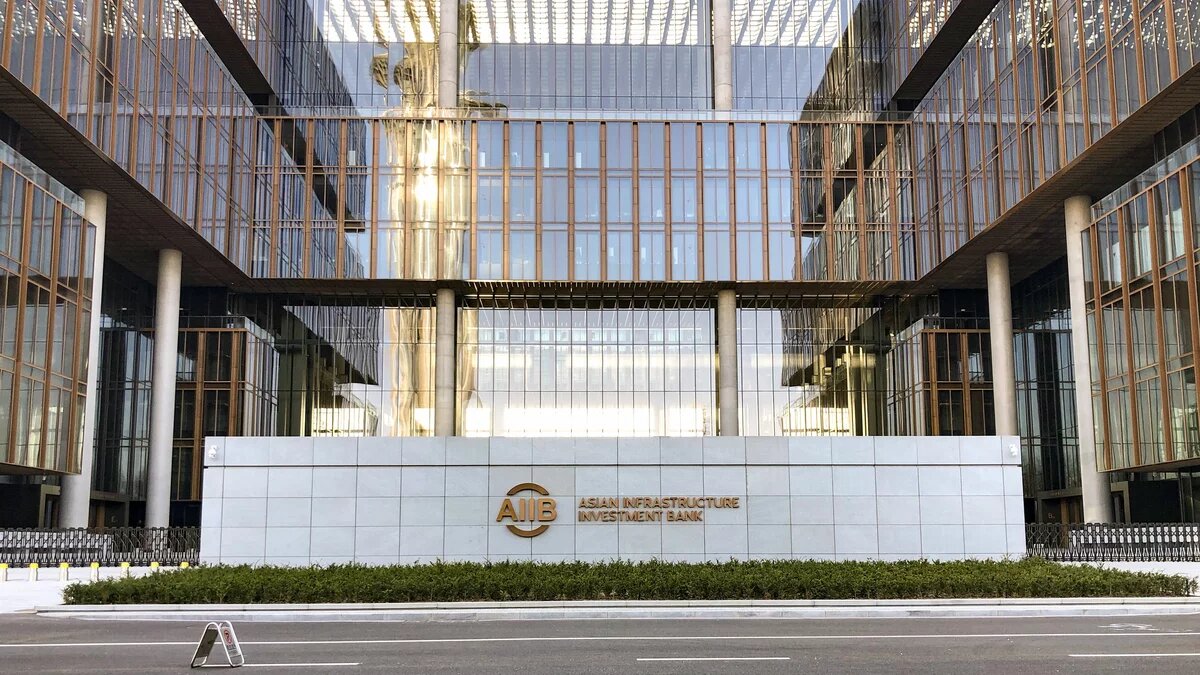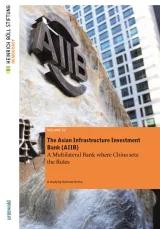Starting from October 2021, the Asian Infrastructure Investment Bank (AIIB) will begin using a newly revised but still problematic environmental and social framework. This framework contains the right words and appears to tick all the boxes, but it includes too many loopholes and caveats that undermine early disclosure of environmental and social risks.

Starting next month, the Asian Infrastructure Investment Bank (AIIB) will begin using a newly revised but still problematic environmental and social framework. This framework contains the right words and appears to tick all the boxes, but it includes too many loopholes and caveats that undermine early disclosure of environmental and social risks.
Investments in large infrastructure projects invariably carry high environmental and social risks. Standards on public access to information before project approval are a key element in addressing these risks. European and like-minded governments stated that they would be working toward the adoption of high international standards and best practices at the AIIB.
In response to these sensitivities, AIIB President Jin Liqun, a former deputy finance minister in China with many years of experience working at the World Bank and the Asian Development Bank, ensured that the AIIB’s language was tailored to appeal to international audiences. At the launch of its Policy on Public Information in 2018, he stated that “Transparency and accountability are the two main pillars of AIIB governance…”
But the AIIB’s Policy on Public Information only lists general principles, such as a “presumption in favor of disclosure,” instead of a list of documents to be made publicly available. It contains numerous exceptions including a provision for non-disclosure if a government considers the information to be sensitive.
The AIIB’s revised Environmental and Social Framework (ESF), which enters into effect in October, addresses public access to information on environmental and social impacts. In a nod to some concerned shareholders, the revisions include a reference to specific timeframes for the public release of draft environmental assessments for high-risk projects.
However, the same paragraphs include caveats which ultimately leave decisions on when to disclose such drafts to AIIB Management. Other sections in the ESF allow for the deferral of public information or for no public disclosure at all. For example, no disclosure is required where transactions are of a commercially sensitive nature. Even more constraints apply to the growing area of lending through financial intermediaries (FIs), such as commercial banks and private equity funds.
Furthermore, the AIIB’s efforts to mobilize private capital markets for infrastructure finance will rely on ill-defined approaches to Environmental, Social, and Governance (ESG) to be developed by individual asset managers and exempt from the AIIB’s ESF.
The AIIB’s Mandalika project in Indonesia provides a concrete example of how a lack of transparency can facilitate human rights violations. The bank’s unwillingness to disclose its audit of the client’s land survey and failure to assess environmental and social risks in the planning phase caused significant and irreversible damage to project-affected communities.
In early 2021, independent experts from the UN Human Rights Council questioned the AIIB’s practices and lack of due diligence after considering testimonies from indigenous and other communities. Their testimonies revealed that many suffered severe consequences after asserting their rights to information and participation despite threats of loss of land and livelihoods.
The vagueness of the AIIB policy provisions causes added concern because of the institution’s particular governance model. In the name of efficiency, the AIIB rejected the early request from European shareholders to have a resident board of directors based at the AIIB in Beijing. A far-flung board has greater difficulty in exercising its oversight function.
In 2018, the AIIB adoptedwhat it considers to be a major innovation in governance, its Accountability Framework. It formalizes the delegation of decision-making power on financing from the Board to the AIIB’s President. Initially, certain conditions apply, such as thresholds on the loan or investment amounts to be decided by the President. These are set to grow over time, effectively concentrating increasing decision-making power in the AIIB President.
With the establishment of the AIIB, China has created a multilateral instrument where it sets the rules, and which has the potential to better serve its global interests than pursuing a unilateral course.
The AIIB’s link to China’s Belt & Road Initiative (BRI) is an example. In its early years, the AIIB sought to demarcate itself from the BRI. President Jin Liqun emphasized the AIIB’s multilateral character and high standards to set it apart from the BRI. Now, the AIIB refers to a natural complementarity between the two. At the AIIB’s Annual Meeting in 2020, Chinese leader Xi Jinping emphasized that his leadership proposed the establishment of the AIIB in 2013. He launched the BRI in the same year and for the same purpose.
The AIIB now also serves as the administrator and host of the Multilateral Cooperation Center for Development Finance (MCDF), which was established by the Chinese Ministry of Finance and which Chinese media refer to as a platform for BRI investments. The MCDF is not subject to oversight by the AIIB’s Board of Directors.
From the beginning, it has been disingenuous to consider the AIIB as separate from China’s opaque political system of enforced central control, which permeates all sectors of activity and where even the slightest divergence from Beijing’s official narrative is punishable.
There is now the broader risk that the AIIB’s efficiency drive, with its promises of no red tape and fast financing, encourages weaker safeguards and due process across the board as other multilateral development banks (MDBs) fear losing business and investment opportunities.
Governments must not only prevent this drive to the bottom; they must also improve the way that traditional multilateral banks function. MDBs have often rightly been criticized for serving vested interests and paying little attention to the negative impacts of ill-conceived investments.
Publicly accountable multilateral institutions are the international community’s best response to the spread of a governance system where demands for human rights and the rule of law are increasingly criminalized. And that accountability begins with public access to information.
Korinna Horta, PhD, is a resident scholar at the University of Lisbon and an independent researcher. Wawa Wang is the program director of Just Finance International.
The article was originally published by the CSIS Reconnecting Asia Project.

